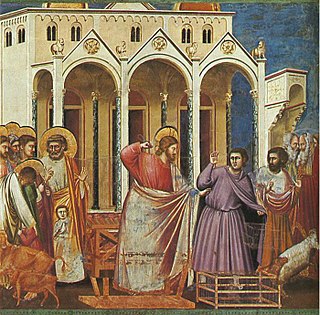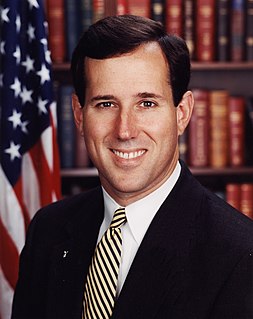 W
WThe Ahmadiyya Movement in Islam universally accepts the process of evolution, albeit divinely guided, and actively promotes it. Over the course of several decades, the movement has issued various publications in support of the scientific concepts behind the process of evolution and frequently engages in promoting how religious scripture supports the concept.
 W
WSin is an immoral act considered to be a transgression of divine law. The doctrine of sin is central to Christianity, since its basic message is about redemption in Christ.
 W
WChristian views on divorce find their basis both in biblical sources dating to the giving of the law to Moses and political developments in the Christian world long after standardization of the Bible. According to the synoptic Gospels, Jesus emphasized the permanence of marriage, but also its integrity. In the book of Matthew, Jesus says "Because of your hardness of heart Moses allowed you to divorce your wives, but from the beginning it was not so. And I say to you: whoever divorces his wife, except for sexual immorality, and marries another, commits adultery".
 W
WHades, according to various Christian denominations, is "the place or state of departed spirits", also known as Hell, borrowing the name of the Greek god of the dead.
 W
WFrom the earliest days of the Christian faith, Christians have honored holy matrimony as a divinely blessed, lifelong, monogamous union, between a man and a woman. According to the Episcopal Book of Common Prayer (1979), reflecting the traditional view, "Christian marriage is a solemn and public covenant between a man and a woman in the presence of God," "intended by God for their mutual joy; for the help and comfort given one another in prosperity and adversity; and, when it is God's will, for the procreation of children and their nurture." However, while many Christians might agree with the traditional definition, the terminology and theological views of marriage have varied through time in different countries, and among Christian denominations.
 W
WThere have been a variety of Christian views on poverty and wealth. At one end of the spectrum is a view which casts wealth and materialism as an evil to be avoided and even combated. At the other end is a view which casts prosperity and well-being as a blessing from God.
 W
WFeminists have long struggled with Sigmund Freud's classical model of gender and identity development and reality, which centers around the Oedipus complex. Freud's model, which became integral to orthodox psychoanalysis, suggests that because women lack the visible genitals of the male, they feel they are "missing" the most central characteristic necessary for gaining narcissistic value—therefore developing feelings of gender inequality and penis envy. In his late theory on the feminine, Freud recognized the early and long lasting libidinal attachment of the daughter to the mother during the pre-oedipal stages. Feminist psychoanalysts have confronted these ideas and reached different conclusions. Some generally agree with Freud's major outlines, modifying it through observations of the pre-Oedipal phase. Others reformulate Freud's theories more completely.
 W
WIslamic views on slavery represent a complex and multifaceted body of Islamic thought, with various Islamic groups or thinkers espousing views on the matter which have been radically different throughout history. Slavery was a mainstay of life in pre-Islamic Arabia and surrounding lands. The Quran and the hadith address slavery extensively, assuming its existence as part of society but viewing it as an exceptional condition and restricting its scope. Early Islamic dogma forbade enslavement of free members of Islamic society, including non-Muslims (dhimmis), and set out to regulate and improve the conditions of human bondage. The sharīʿah regarded as legal slaves only those non-Muslims who were imprisoned or bought beyond the borders of Islamic rule, or the sons and daughters of slaves already in captivity. In later classical Islamic law, the topic of slavery is covered at great length. Slaves, be they Muslim or those of any other religion, were equal to their fellow practitioners in religious issues.
 W
WJewish views on slavery are varied both religiously and historically. Judaism's ancient and medieval religious texts contain numerous laws governing the ownership and treatment of slaves. Texts that contain such regulations include the Hebrew Bible, the Talmud, the 12th-century Mishneh Torah by rabbi Maimonides, and the 16th-century Shulchan Aruch by rabbi Yosef Karo. The original Israelite slavery laws found in the Hebrew Bible bear some resemblance to the 18th-century BCE slavery laws of Hammurabi. The regulations changed over time. The Hebrew Bible contained two sets of laws, one for Canaanite slaves, and a more lenient set of laws for Hebrew slaves. From the time of the Pentateuch, the laws designated for Canaanites were applied to all non-Hebrew slaves. The Talmud's slavery laws, which were established in the second through the fifth centuries CE, contain a single set of rules for all slaves, although there are a few exceptions where Hebrew slaves are treated differently from non-Hebrew slaves. The laws include punishment for slave owners that mistreat their slaves. In the modern era, when the abolitionist movement sought to outlaw slavery, supporters of slavery used the laws to provide religious justification for the practice of slavery.
 W
WJohn Calvin (1509–1564) was a French Protestant theologian during the Protestant Reformation, and one of the most influential reformers. He was a central figure for the Reformed churches, whose theological system is sometimes called Calvinism.
 W
WVery few texts in Judaism refer to or take note of the Islamic prophet, Muhammad. Those that do generally reject Muhammad's proclamation of receiving divine revelations from God and label him instead as a false prophet.
 W
WThe Latter Day Saint movement teaches that Mary was the mother of Jesus, whose father was God the Father. Latter Day Saints affirm the virgin birth of Jesus but reject the Roman Catholic traditions of the Immaculate Conception, the perpetual virginity of Mary, and her assumption. They also believe that the brothers of Jesus were her and Joseph's biological children. Mary is not seen as an intercessor between humankind and Jesus, and Latter Day Saints do not pray to Mary. The Book of Mormon, part of the Latter Day Saint canon of scripture, refers to Mary by name in prophecies of her mission, and describes her as "most beautiful and fair above all other virgins" and as a "precious and chosen vessel."
 W
WDuring the Early Middle Ages, Christendom largely viewed Islam as a Christological heresy and Muhammad as a false prophet. By the Late Middle Ages, Islam was more typically grouped with heathenism, and Muhammad was viewed as inspired by the devil. A more relaxed or benign view of Islam only developed in the modern period, after the Islamic empires ceased to be an acute military threat to Europe. See Orientalism.
 W
WA point of view shot is a short film scene that shows what a character is looking at. It is usually established by being positioned between a shot of a character looking at something, and a shot showing the character's reaction. The technique of POV is one of the foundations of film editing.
 W
WThe existence and distinctiveness of the Macedonian language is disputed in Bulgaria and the name of the language was disputed in Greece. With signing the Prespa Agreement, Greece accepted the name "Macedonian language" in reference to the official language of North Macedonia.
 W
WProtestant views on Mary include the theological positions of major Protestant representatives such as Martin Luther and John Calvin as well as some modern representatives. While it is difficult to generalize about the place of Mary, mother of Jesus in Protestantism given the great diversity of Protestant beliefs, some summary statements are attempted.
 W
WThere are a variety of religious views on suicide.
 W
WFormer Republican U.S. Senator and 2012 and 2016 U.S. Presidential candidate Rick Santorum is opposed to homosexual behavior, seeing it as antithetical to a healthy, stable, traditional family. Santorum does not believe the right to privacy under the United States Constitution covers sexual acts, and criticized the US Supreme Court ruling in the case of Lawrence v. Texas that ruled to the contrary. Santorum has stated that the U.S. military's "Don't ask, don't tell" policy, which ended in 2011, should be reinstated and has voiced his opposition to same-sex parenting. Santorum's views provoked criticism from Democratic politicians and other groups, but have been supported by some conservative Christians.
 W
WSigmund Freud's views on homosexuality ascribed biological and psychological factors to explain the principal causes of homosexuality. Sigmund Freud believed that humans are born with unfocused sexual libidinal drives, and therefore argued that homosexuality might be a deviation from this.
 W
WSurveys of scientists' views on climate change – with a focus on human-caused or anthropogenic global warming (AGW) – have been undertaken since the 1990s. A 2016 paper concluded that "the finding of 97% consensus [that humans are causing recent global warming] in published climate research is robust and consistent with other surveys of climate scientists and peer-reviewed studies." A 2019 study found scientific consensus to be at 100%.
 W
WAn unreliable narrator is a narrator whose credibility is compromised. They can be found in fiction and film, and range from children to mature characters. The term was coined in 1961 by Wayne C. Booth in The Rhetoric of Fiction. While unreliable narrators are almost by definition first-person narrators, arguments have been made for the existence of unreliable second- and third-person narrators, especially within the context of film and television, and sometimes also in literature.